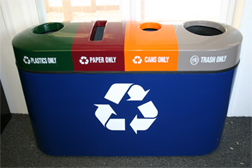 In offices and homes, so many things can be recycled. Did you know it costs less to recycle than it does to get rid of trash? What can you recycle? Aluminum, tin cans, glass bottles and plastics as well as mixed paper, including newspapers, junk mail, magazines and corrugated cardboard.
In offices and homes, so many things can be recycled. Did you know it costs less to recycle than it does to get rid of trash? What can you recycle? Aluminum, tin cans, glass bottles and plastics as well as mixed paper, including newspapers, junk mail, magazines and corrugated cardboard.
Best of all, everything that goes into a recycling truck stays out of the regional landfill. That saves everyone money. For example, the city of Roanoke pays $45 a ton to dispose of trash and $19 a ton to paper recycling. So if people recycle they save the city $26 a ton in tax dollars! That is a disparity that is in every city. Everyone saves by recycling.
Unfortunately, we understand the benefits of recycling but the majority of households and businesses in most cities do NOT recycle. And, of the ones that do, they don’t recycle enough. Office managers can make it easier for their employees to recycle by adding recycling bins. There are even recycle bins that make it easy to recycle multiple materials.
The more you recycle the more money you save cities and towns and the business in which you work. How does this translate? Tax dollars can be used elsewhere. In business, money can be redirected to use in marketing or increasing sales. More money in the budget is always a good thing.
For more information on office recycling bins, contact the Fibrex Group.
Green Recycling Products Blog
Recycling Saves Business and Cities Money
Office Recycling Tips
 Sustainable business practices can help businesses lower their operating costs, reduce waste and gain new customers. However, to realize all the benefits of a sustainable business, it is important to engage the employees and have conveniently located recycling bins. An engaged workforce is more productive and happy!
Sustainable business practices can help businesses lower their operating costs, reduce waste and gain new customers. However, to realize all the benefits of a sustainable business, it is important to engage the employees and have conveniently located recycling bins. An engaged workforce is more productive and happy!
Here are 4 ways you can engage your employees with your recycling and sustainability goals:
- Employee ownership: Involve your employees in the decision-making process. Ask for suggestions and ideas to encourage your employees to participate in the development of your company’s green initiatives.
- Establish resource conservation managers: Many business operations require direct management. Consider establishing managers for energy conservation, recycling efforts and employee commute programs.
- Team building through green initiatives: Employees can accomplish a lot when they are excited about the cause. Encourage employees to form Green Teams on voluntary basis and reward group green achievements with perks such as time off or special lunches.
- Encourage employee participation in environmental activities: Organize a company Earth Day clean up or green weekend activities such as planting trees in the neighborhood. These activities are a great way for employees to develop camaraderie around a good cause.
For information on recycling bins for the office, contact the Fibrex Group.
Green Business Bureau
Bigger Recycling Bins Mean More Can Be Recycled
Tampa gets to say goodbye to the old blue recycle bins and boxes that didn’t hold enough recyclable stuff! Now they are saying hello to the new recycling carts: the City of Tampa is upgrading the old recycling containers with new, full-sized green versions on wheels.
The green recycling bins are being rolled out in four phases over the next 18 months. The first homes to get them are the neighborhoods that recycle the most.
"Those folks who have been faithfully recycling are going to be rewarded first by getting the cart," said City of Tampa Solid Waste & Recycling Director Tonja Brickhouse.
The new bins are nearly seven times larger, holding up to 95 gallons of recycled goods.
The new recycling bins are bigger, but the new reality is more people want to recycle. More items can fit, so more will household goods will be recycled.
The bigger bins are more expensive, but since they're part of an automated collection system, labor costs will go down.
Bottles, cans, cardboard, and paper goods are all welcome inside the new recycling carts. City leaders are hopeful that the new carts could raise the city's recycling rate to 50% of all households.
Tampa's Solid Waste Department hopes to have the new green recycling bins at 85% of city households by fall of 2014.
For more information on larger recycling bins, contact Fibrex Group.
My Fox Tampa Bay
Recycle Used Oil in Oil Recycling Containers
 Did you know used oil can be re-refined into base stock for lubricating oil?
Did you know used oil can be re-refined into base stock for lubricating oil?
If you recycle just two gallons of used oil it can generate enough electricity to run the average household for almost 24 hours.
Cars are an indispensable fact of life for most of us. So, too, are abundant and clean supplies of drinking water. What we do with the used oil from our cars plays an important role in balancing our desire for convenient transportation with our desire for a clean and healthy environment today and for future generations.
We are all familiar with recycling newspapers, aluminum cans, glass and plastic bottles, but you may not be aware of the efforts of the petroleum industry and other groups to promote used motor oil recycling: providing convenient collection sites for the purpose of keeping used motor oil out of our waterways and ground water supplies and getting used oil into the recycling system. Many individuals who are unfamiliar with the importance of recycling used oil are unconsciously harming the environment by throwing it away with their normal garbage or emptying their used oil into storm drains. Such actions can cause real harm to the environment. To put it into perspective, just one gallon of used oil can contaminate 1 million gallons of water.
Recycling your used motor oil into oil recycling containers keeps it out of our rivers, lakes, streams and even the ground water. In many cases, that means keeping it out of our drinking water, off our beaches, and away from wildlife. We all share the responsibility of protecting our environment and keeping our waters safe. Recycling used oil allows us to continue to enjoy what many of us take for granted every day – clean water.
Motor oil has value even after it has been drained from an engine. The oil you take to a collection center is held in oil recycling containers until the oil is to be recycled. Recycled oil saves energy. It can be reprocessed and used in furnaces for heat or in power plants to generate electricity for homes, schools, and businesses. It can also be sent to a refinery that specializes in processing used oil and re-refined into lubricating base oils that can be used to formulate engine oils.
What can you do? If you change your own oil, be certain that you take it to a collection center for recycling. If you take your car to an automotive service outlet, you can be fairly certain that they recycle the oil that they change. But if you're not sure, ask.
Used motor oil that is collected by "Do-It-Yourselfers" (DIY) is critical to the used oil recycling system. Next time you change your own oil, remember, you can make a difference by recycling the oil from your car, truck, motorcycle, boat, recreational vehicle or lawnmower. By dropping off your used motor oil today you help prevent pollution and conserve energy for a safer and healthier tomorrow.
For more information on oil recycling containers, contact the Fibrex Group.
Benefits of Recycling
Too Much Garbage
One of the main reasons for recycling is to reduce the amount of garbage sent to landfills. Landfill usage peaked in the 1980s, when Americans sent almost 150 million tons (136.08 million metric tons) of garbage to landfills each year. Today, we still dump more than 100 million tons (90.719 million metric tons) of trash into landfills annually [source: Hall]. Even though modern sanitary landfills are safer and less of a nuisance than the open dumps of the past, no one likes having a landfill around. In heavily populated areas, landfill space is scarce. Where space is plentiful, filling it with garbage isn't a very good solution to the problem. Today, recycling efforts in the United States divert 32 percent of waste away from landfills. That prevents more than 60 million tons (54.432 million metric tons) of garbage from ending up in landfills every year [source: EPA].
Pollution from Landfill Leachate
Landfills cause another problem in addition to taking up lots of space. The assortment of chemicals thrown into landfills, plus the chemicals that result when garbage breaks down and blends into a toxic soup known as leachate, creates huge amounts of pollution. Leachate can drain out of the landfill and contaminate groundwater supplies. Today, impermeable clay caps and plastic sheeting prevent much of this run off, making the landfills much safer than they were just a few decades ago. Still, any leachate is too much if it's draining into your neighborhood.
New Goods Use Up Resources
Making a brand-new product without any recycled material causes natural resources to deplete in the manufacturing process. Paper uses wood pulp from trees, while the manufacture of plastics requires the use of fossil fuels like oil and natural gas. Making something from recycled materials means using fewer natural resources.
Recycling Uses Less Energy
There's room for debate on this aspect of recycling, but many recycling processes require less energy than it would take to manufacture the same item brand-new. Manufacturing plastic is very inexpensive, and some plastic goods can be difficult to recycle efficiently. In those cases, the recycling process probably takes more energy. It can also be difficult to weigh all the energy costs along the entire chain of production. Recycling steel certainly uses less energy than the entire process of mining iron ore, refining it and forging new steel. Some contend that the fleet of recycling trucks collecting plastic and paper door to door every week in cities across the United States tips the balance of energy out of recycling's favor. Energy use is a factor weighed on a case-by-case basis.
Money
Recycling has a variety of economic impacts. For the companies that buy used goods, recycle them and resell new products, recycling is the source of all their income. For cities in densely populated areas that have to pay by the ton for their landfill usage, recycling can shave millions of dollars off municipal budgets. The recycling industry can have an even broader impact. Economic analysis shows that recycling can generate three times as much revenue per ton as landfill disposal and almost six times as many jobs. In Virginia, recycling generates an estimated 16,000 jobs and well more than $4 billion in annual revenue.
Go Green Recycling Tips
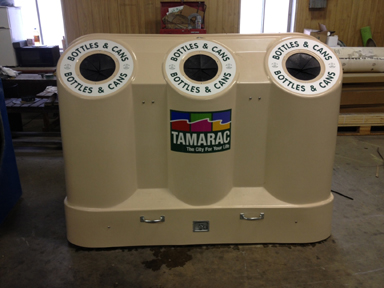 Recycling got it's start almost four decades ago, when a U.S. paper company wanted a symbol to communicate its products' recycled content to customers. The design competition they held was won by Gary Anderson, a young graphic designer from the University of Southern California. His entry, based on the Mobius strip (a shape with only one side and no end) is now universally recognized as the symbol for recycling. To many people, recycling conjures up the blue plastic bins and bottle drives. But recycling is a design principal, a law of nature, a source of creativity, and a source of prosperity.
Recycling got it's start almost four decades ago, when a U.S. paper company wanted a symbol to communicate its products' recycled content to customers. The design competition they held was won by Gary Anderson, a young graphic designer from the University of Southern California. His entry, based on the Mobius strip (a shape with only one side and no end) is now universally recognized as the symbol for recycling. To many people, recycling conjures up the blue plastic bins and bottle drives. But recycling is a design principal, a law of nature, a source of creativity, and a source of prosperity.
1. First things first, a little R & R & R. The aphorism is so tired it almost might seem like "reduce, reuse, recycle" should go without saying. But in fact, most of us have only really heard the last third of the phrase, and they're ranked in order of importance. Reducing the amount that we consume, and shifting our consumption to well-designed products and services, is the first step. Finding constructive uses for "waste" materials is next. And tossing it in the blue bin is last. (The garbage can is not on the list, for good reason.) Through a balance of these three principals you can easily see your landfill-destined waste dwindle fast. A good example of recycling is setting your empty water bottles in the bin on the curb. But by using a water filter and reusable container you can reduce or completely eliminate your need for disposable plastic bottles.
2. Know what you can and can't recycle. Read up on the recycling rules for your area and make sure you don't send anything in that can't be processed. Each city has its own specifics, so try to follow those guidelines as best you can.
3. Buy recycled. The essence of recycling is the cyclical movement of materials through the system, eliminating waste and the need to extract more virgin materials. Supporting recycling means feeding this loop by not only recycling, but also supporting recycled products. We can now find high recycled content in everything from printer paper to office chairs. The Fibrex Group has a complete line of recycled content products which close the loop and can even be recycled when the user has completed the product's life cycle.
4. Encourage an artist. If you know someone interested in making art from recycled materials, offer to provide supplies. Many school children need items like paper towel tubes for art projects. Older artists use everything from rubber bands to oven doors. If you know someone who teaches art classes, suggest that an emphasis be put on making art from trash. While you're at it, remind them to use recycled paper and biodegradable, earth-friendly glues, paints, and pencils whenever possible. See below for inspiration and groups that connect artists and students with useful "trash."
5. Recycle your water. If you're a homeowner, consider rearranging your plumbing so that rainwater or wastewater from your shower and tub is used to flush your toilet. If you have a garden, water it with leftover bathwater or dishwashing water (as long as you use a biodegradable soap).
6. Recycle your greenery. William McDonough and Michael Braungart, authors of the groundbreaking Cradle to Cradle, envision so-called "waste" divided into two categories: technical nutrients and biological nutrients. Biological nutrients are those that, at the end of their useful life, can safely and readily decompose and return to the soil. Composting is one of the simplest and most effective recycling methods. Both your garden cuttings and your green kitchen waste can go into an outdoor or indoor composter (with or without entertaining a population of worms). If you don't have a garden yourself, find neighbors or a community garden that can make use of your soil. Composting food scraps will mean your regular kitchen wastebasket fills up more slowly and also won't smell. Hotter, more active compost heaps can also consume tougher stuff like newspaper and paper napkins. After Christmas, many cities also have programs for turning your tree into mulch.
7. Recycle your robots. Electronics recycling is becoming more common in many urban areas, battery recycling is ubiquitous (rechargeable batteries are ecologically sounder, but even they wear out after a while), and there are a number of non-profit organizations that will take computer parts and turn them into working computers for others. Companies like Ebay have also developed programs to help your electronics find new homes. Other groups will gladly recycle your cell phone or give it to a senior citizen, as even without a contract it can still make emergency calls. If you have a major appliance that doesn't work and you'd rather replace it than try to fix it, offer it to local repair shops, trade schools, or hobbyists to tinker with. Many cities now offer hazardous waste recycling days when they will take not only hazardous waste, but electronics.
8. Anticipate recycling In addition to buying recycled goods, keep a keen eye out for recyclable goods. Whenever you purchase something packaged, think about how you can reuse the packaging, return it to a shipping store for reuse, or try to otherwise recycle it. If you get something likely to run down or wear out over time, such as an electronic component, give preference to the model that can be easily upgraded or cannibalized for parts so that you don't have to junk the whole thing if one part breaks. Products that are impossibly fused together are often called "monstrous hybrids" and are, while often cheaper up front, frequently unfixable and unrecyclable.
9. If you don't love something, let it go. Lots of charities welcome your donations. Groups like Freecycle and Recycler's Exchange exist to help you get rid of useful objects that you just don't want to make use of. If you're in a Craigslist city, make use of the "free stuff" section. Give away clothes that don't fit, the boxes you used in your last house move, or scented soaps that don't appeal to your sensibilities. Make it a rule in your house that nothing useable goes in the trash until you've given the community a fair shot at it.
10. Become a waste-stream analyst. To better understand the kind of materials that enter and leave your home, office, or school, consider conducting a waste audit. Set a span of time like a week or a month, and separate your waste categories. Weigh the different kinds of material flows that go out the door (landfill waste, organic compost, aluminum, recyclable plastic, reusable material, etc.). Design a "material recovery" program that minimizes the amount going to the landfill. This is a great exercise to do with kids but can be very convincing to corporate higher-ups, too, especially since most companies pay to have their trash hauled away and can get money for recycled paper, containers, toner cartridges, corrugated cardboard, and such.
And as always, the Fibrex Group has a full line of products with recycled content available to help you collect those recyclables. We are proud of the fact that the Fibrex Group's Mobius Flex continues to set the American standard for indoor recycling bins. Please visit us on our website or call us at 1-800-346-4458 to receive a copy of our FREE catalog to discover what we can do for you!
One Recycled Can Powers a TV for Two Hours (And Other Fun Facts)
All of us at The Fibrex Group care deeply for the environment and are very proud of the fact that we produce the finest quality and value-priced recycling products on the market today. Fibrex office recycling bins and home recycling bins not only help the individual consumer and American business save money, these products serve to simultaneously improve the environment.
We thought it would be fun to share some eye-opening recycling facts that were recently published by "earth911.com".
- One recycled glass bottle powers a computer for 30 minutes. The Fibrex Mobius Flex is the most stylish, durable, and value priced indoor recycling/waste receptacle on the market today!
- The average American uses 5.57 40-foot trees worth of paper every year. Recycle your paper in style using any one of the Fibrex Designer Recycling Receptacles.
- Did you know that the average American wastes between 209 and 253 pounds of food every year!
To learn more amazing recycling and energy use facts like these, visit "earth911.com". When it's time to take your personal or professional recycling to the next level, The Fibrex Group is there for you!
Recycle During the Holidays
According to Use Less Stuff, 25% more trash is thrown away during the holidays than any other time of the year. The holiday season is a time of appreciation and sharing. Give a gift to Mother Nature by going green this holiday season.
Here are 5 Tips from the Green Business Bureau for a greener holiday season:
- Recycle wrapping paper: Wrap gifts in recycled wrapping paper. Use newspapers, old tin boxes or wrapping papers from previous years to wrap gifts. Give gifts that don’t require wrapping, such as gift certificates.
- Use recycled holiday cards: Buy cards made from recycled paper or make creative cards using recycled material. You can also reduce waste by sending free electronic greeting cards.
- Buying gifts: Check product labels to determine whether they are made from eco-friendly materials. Buying recycled materials encourages manufacturers to use recycled materials in their products and close the waste loop.
- Make the switch to LED lights: Use LED lights for decoration this season. They are beautiful and cost-effective.
- Set a light timer: Set a timer to have your lights automatically turn on at sunset and turn off when your family goes to bed.
Learn more ways to go green this holiday season from the experts at Green Irene.
Happy Greener Holidays from the Fibrex Group!
Green Business Bureau
Introducing the Stylish Mobius Flex Recycling Containers - Designer Image at an Affordable Price
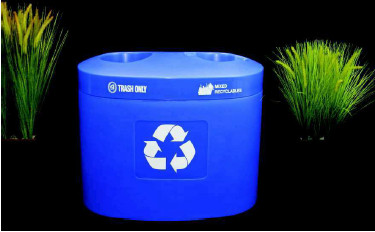 The new stylish Mobius Flex is not only very attractive, but also
extremely durable and user friendly. This recycling container is perfect for schools, universities, airports, military installations & facilities, malls,
apartments & condominiums, hotels, convention centers and office buildings. High-end look at an affordable price.
The new stylish Mobius Flex is not only very attractive, but also
extremely durable and user friendly. This recycling container is perfect for schools, universities, airports, military installations & facilities, malls,
apartments & condominiums, hotels, convention centers and office buildings. High-end look at an affordable price.
The Mobius Flex is an exclusive Fibrex Recycling Container product which was designed and manufactured by our team of experts. We can offer you the most competitive factory direct pricing, custom designs and excellent customer service. With the look of an expensive designer receptacle, the Mobius FlexTM looks attractive, is very durable and is priced at $695 retail - much lower than those upscale products! And much more budget friendly for your organization!!
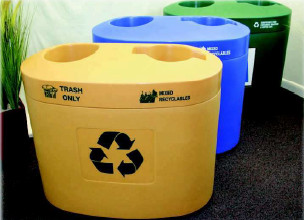
The Mobius Flex and all Fibrex Mobius Recycling Containers always contain the maximum amount of recycled content and are in use in over 3,000 communities, parks, educational facilities, corporate offices, military bases, retail establishments, multi-family housing, and the hospitality industry all over the United States and Canada.
Call us today at 1-800-346-4458 for more information
or visit us on the web.
Universities Compete in RecycleMania
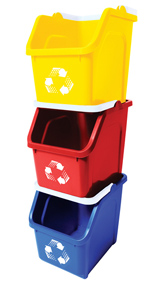 Back in January 2001, the recycling coordinators at Ohio University and Miami University decided to challenge each other to find out which campus had students who would recycle better than the other. Thus, they launched the yearly RecycleMania: www.RecycleMania.com competition. This competition enables universities to compete and challenge each other to determine who can recycle the most.
Back in January 2001, the recycling coordinators at Ohio University and Miami University decided to challenge each other to find out which campus had students who would recycle better than the other. Thus, they launched the yearly RecycleMania: www.RecycleMania.com competition. This competition enables universities to compete and challenge each other to determine who can recycle the most.
Beginning in 2004, as explained on www.RecycleMania.com, they partnered with the US EPA WasteWise program to develop a website and provide administrative support for the program. Participation in the Tournament competition continued to grow with 93 schools in 2006; 210 in 2007; and 400 in 2008. The most recent 2011 competition included 630 colleges representing 49 states and 4 Canadian provinces. Over 7.5 million students and staff participated, collectively recycling 91 million pounds of recyclables and organic materials were recovered.
RecycleMania taps into university school spirit by turning recycling into competitive motivators to reach students who may not otherwise respond to environmental messages. When many college students are forming the habits and values they will carry for the rest of their lives, this competitive program works to reinforce and build on those practices.
One way that students can make recycling a daily habit is to have a Fibrex Group apartment multi-recycler bin in their dorm or apartment. Even the Clear View recycling receptacle would be perfect for common areas in the dorm building. Both recycling containers are made from recycled plastic, are sturdy, easy to use, and even look cool in a college student’s living space. Show the world & your university that you care about the environment – recycle!
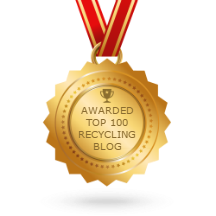
Recent Posts
Archive
- May 2022 (1)
- April 2020 (1)
- March 2020 (1)
- July 2018 (3)
- April 2017 (1)
- March 2017 (4)
- February 2017 (5)
- January 2017 (3)
- December 2016 (3)
- November 2016 (6)
- October 2016 (4)
- September 2016 (6)
- August 2016 (5)
- July 2016 (5)
- June 2016 (4)
- May 2016 (5)
- April 2016 (4)
- March 2016 (7)
- February 2016 (9)
- January 2016 (4)
- December 2015 (3)
- November 2015 (4)
- October 2015 (4)
- September 2015 (4)
- August 2015 (4)
- July 2015 (4)
- June 2015 (4)
- May 2015 (4)
- April 2015 (5)
- March 2015 (5)
- February 2015 (6)
- January 2015 (4)
- December 2014 (3)
- November 2014 (1)
- October 2014 (2)
- September 2014 (4)
- August 2014 (4)
- July 2014 (2)
- June 2014 (2)
- May 2014 (3)
- April 2014 (4)
- March 2014 (4)
- February 2014 (4)
- January 2014 (4)
- December 2013 (3)
- November 2013 (3)
- October 2013 (4)
- September 2013 (3)
- August 2013 (4)
- July 2013 (2)
- June 2013 (3)
- May 2013 (2)
- April 2013 (3)
- March 2013 (4)
- February 2013 (4)
- January 2013 (3)
- December 2012 (1)
- November 2012 (1)
- October 2012 (1)
- September 2012 (3)
- August 2012 (2)
- July 2012 (1)
- June 2012 (2)
- April 2012 (1)
- March 2012 (1)
- February 2012 (3)
- December 2011 (1)
- November 2011 (1)
- October 2011 (1)
- August 2011 (4)
- July 2011 (5)
- June 2011 (4)
- May 2011 (3)
- April 2011 (4)
- March 2011 (5)






































